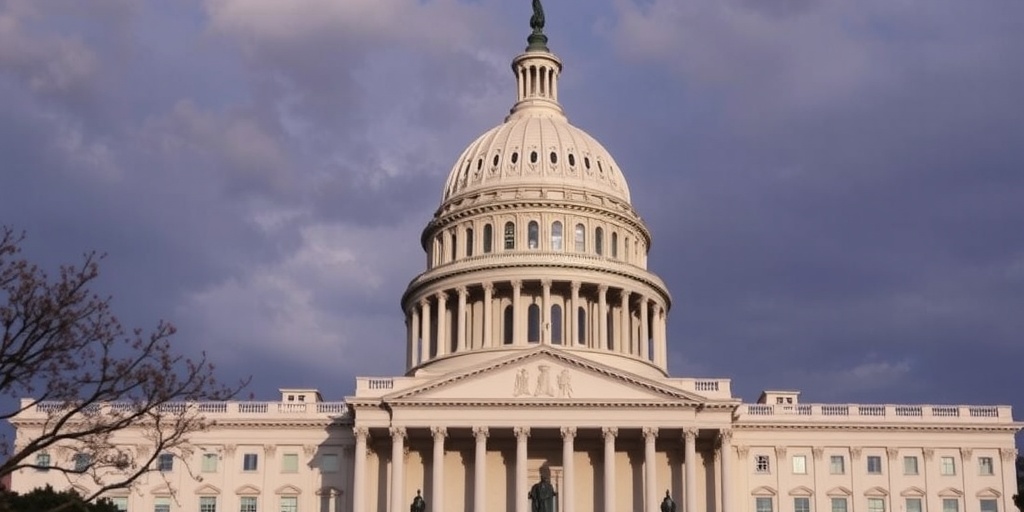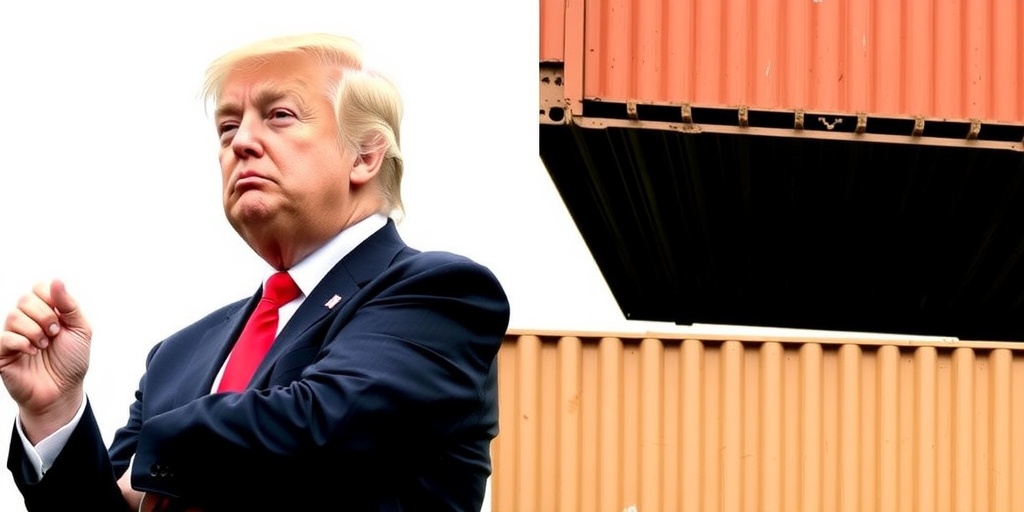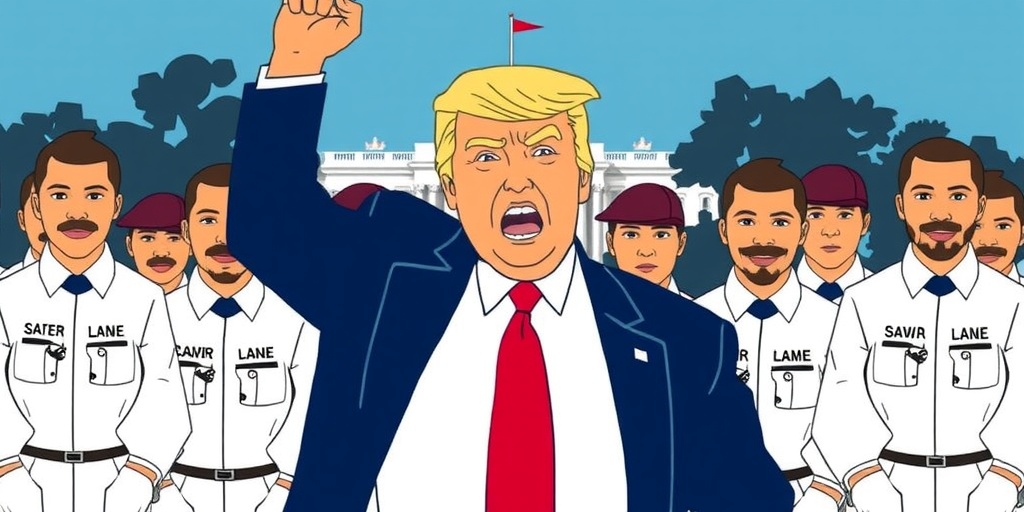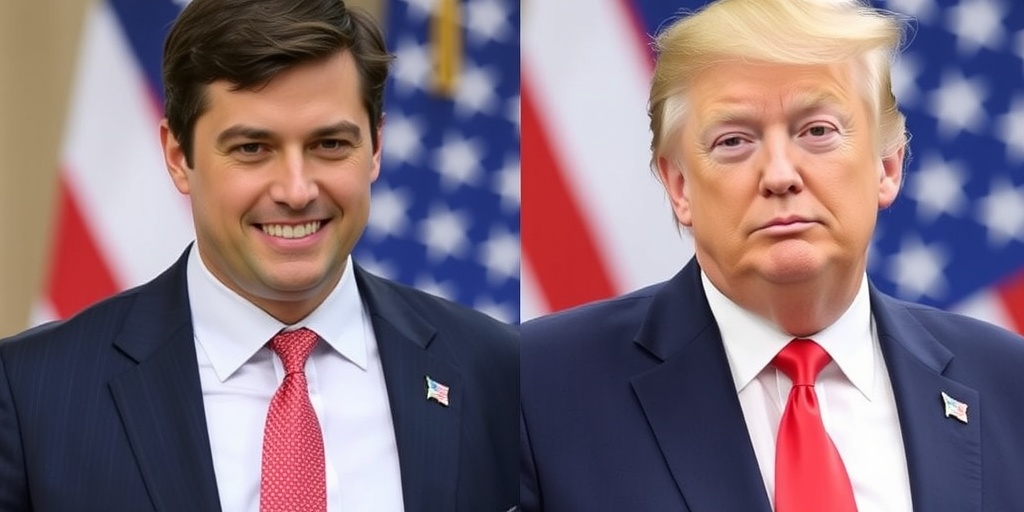Now Reading: Current Congress Gets High Marks, But Likely Not for Long
-
01
Current Congress Gets High Marks, But Likely Not for Long
Current Congress Gets High Marks, But Likely Not for Long

Republican Approval of Congress Surges Amid Trump’s Second Term
In the early weeks of President Trump’s second term, Republicans in Congress have rallied behind his cabinet nominees, many of whom have faced significant scandals. This bipartisan support has led some observers to note how the party seems to be prioritizing loyalty over its independent legislative power, a trend that appears to resonate positively with voters. According to a recent Gallup survey, approximately 29 percent of voters currently approve of Congress, marking a substantial 12-point increase since the previous month and representing the highest approval rating for Congress in four years.
What accounts for this sudden surge in approval for a body historically viewed with skepticism? The answer lies predominantly in a notable increase among Republican voters, who show a remarkable 42-point rise in approval. This scenario reflects a familiar pattern in the public’s perception of Congress; when one political party holds the presidency and both chambers of Congress, approval ratings typically soar, albeit often briefly. For instance, in 2021, Democrats enjoyed a fleeting moment of elevated approval when they controlled all branches of government. Similarly, in 2017, Republican approval rates shot up temporarily under Trump’s first administration.
Currently, Republican voters are displaying enthusiasm over the potential for a "governing trifecta" that may fulfill campaign promises. Interestingly, this enthusiasm is not universal; only 5 percent of Democratic voters reported approving of Congress. Jeff Jones, a senior editor at Gallup, indicates that such spikes in approval generally stem from excitement surrounding the prospects of legislative success when one party is in control. However, he cautions that such optimism is often short-lived. "The high approval rating indicates anticipation about possibilities," Jones noted. "But more often than not, they don’t meet those expectations."
The current 53 percent approval rating among Republican voters is the highest level recorded since August 2005, showcasing the partisan divide in feelings towards Congress. Molly E. Reynolds, a senior fellow at the Brookings Institution, suggests that the excitement stems primarily from expectations associated with unified party control rather than actual performance.
Historical data reveals a tendency for partisan enthusiasm under unified government to repeat itself. A similar trend was observed from January 2017, when Republican approval for Congress experienced a significant 30-point increase from the previous Gallup survey during the Obama administration. However, the current increase surpasses that earlier spike, reiterating the connection between party unity and voter sentiment.
Despite this brief moment of favorability, Congress remains an institution that generally garners widespread disdain from the public. Voters across party lines tend to view Congress negatively, echoing a sentiment that lawmakers are not effectively representing the interests of their constituents or working collaboratively across party lines. A 2023 Pew Research survey found that a staggering 80 percent of both Democrats and Republicans believe lawmakers struggle to work cooperatively.
Furthermore, many voters express distrust in their representatives, believing that Congress members are often unable to separate their financial interests from their legislative duties. As a result, even in periods of increased approval, Congress frequently registers lower ratings than the individual lawmakers who make up the body.
This uptick in Republican approval coincides with a unique political landscape where Trump has effectively diminished the power of traditional Republican leadership structures. Speaker Mike Johnson’s role has shifted, positioning him more as an ally to Trump than as a leader of a powerful legislative body. The party has largely acquiesced to Trump’s aspirations, allowing the president to dominate the agenda and sidestep the usual checks and balances associated with Congressional oversight.
Interestingly, while the recent Gallup poll reflects a sudden burst of approval, it may not accurately capture the nuances of daily Congressional activities, which include complex and contentious budget debates that are likely to test the limits of Republican unity. As Republicans tackle these divisive issues, their initial approval may face scrutiny if they fail to navigate the complexities effectively and maintain voter satisfaction.
For now, however, Republicans seem to have accurately interpreted the prevailing political climate beneath the Capitol’s dome. As Jones summarizes, "I don’t know how much people really know about what Congress is doing on a day-to-day basis, other than confirming Trump’s nominees." This underscores the idea that while Republicans are currently buoyed by a moment of solidarity, the long-term impacts of their actions and decisions may reshape public perception once again.
Stay Informed With the Latest & Most Important News
Previous Post
Next Post
-
 01New technology breakthrough has everyone talking right now
01New technology breakthrough has everyone talking right now -
 02Unbelievable life hack everyone needs to try today
02Unbelievable life hack everyone needs to try today -
 03Fascinating discovery found buried deep beneath the ocean
03Fascinating discovery found buried deep beneath the ocean -
 04Man invents genius device that solves everyday problems
04Man invents genius device that solves everyday problems -
 05Shocking discovery that changes what we know forever
05Shocking discovery that changes what we know forever -
 06Internet goes wild over celebrity’s unexpected fashion choice
06Internet goes wild over celebrity’s unexpected fashion choice -
 07Rare animal sighting stuns scientists and wildlife lovers
07Rare animal sighting stuns scientists and wildlife lovers





















